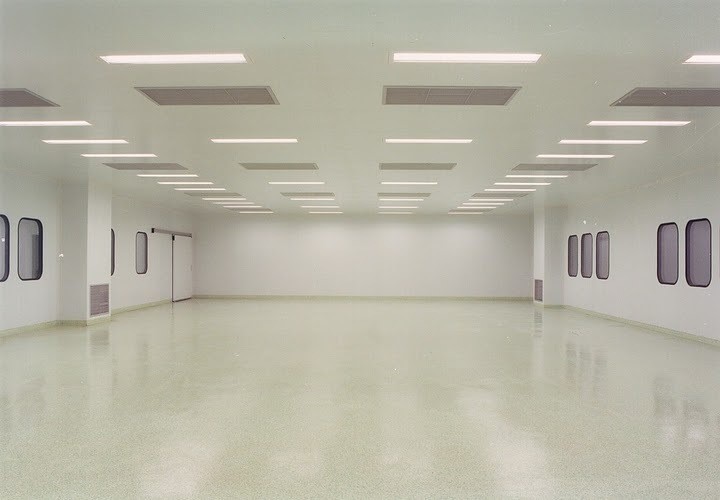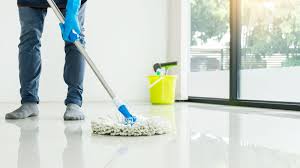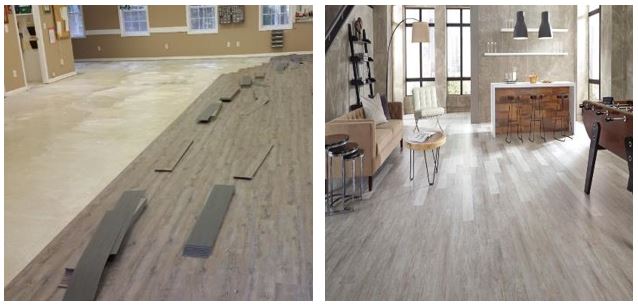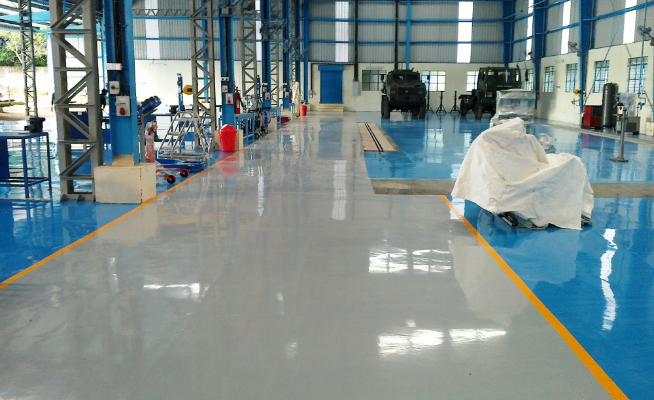Resin Flooring
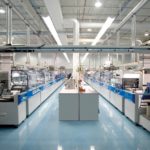
What Are Resin Floors?
Resin floors are a widely used flooring solution. This system utilizes a mix of materials to create a hardened resin surface. This solution is applied in a liquid/fluid form, crafting a seamless flooring system. Resin flooring solutions are incredibly durable and engineered to long life. Some high build thick types of resin flooring can even be harder than concrete.
By combining our various resins with specific chemical hardeners, the resulting proprietary systems achieve desired levels of chemical-resistance. Therefore, resin flooring is capable of withstanding years of harsh heavy-duty cleanings, making it a viable option for a wide range of applications.
Optional additives can be incorporated into resin flooring to achieve desired effects, such as industrial or decorative aggregates, various pigments, etc.
Advantages of Resin Floors and Resin Coatings
Resin flooring holds benefits for facilities everywhere, such as:
- Chemical Resistance: Resin floors are durable and resistant to harsh chemicals. Anti-static: Resign flooring are also available in conduction, dissipative and in insulation range.
- Anti-static: Resign flooring are also available in conduction, dissipative and in insulation range.
- Food Grade (CFTRI approved: U.S FDA 175.300): Food safety is of primary important process. Without continual vigilance, facilities risk an outbreak of pathogen growth at the facility and foodborne illness among consumers. Processors and food manufacturers operate under strict protocols in order to maintain the safest environments possible, and the right urethane or epoxy flooring can help.
- Easy to Clean: Because these systems are seamless, they can typically be cleaned more thoroughly and efficiently. Microbes have fewer hiding places in monolithic, fluid-applied floors as compared to the numerous seams found in tile flooring. With seamless flooring, a regular cleaning routine can help rid your facility of harmful pathogens more effectively.
- Aesthetic Options: Resin flooring is able to incorporate a variety of design options. These solutions are fully customizable. A facility may choose from a variety of colors, as well as select from among exciting decorative elements, such as colorful flake blends. With resin flooring, there is no need to sacrifice aesthetics for durability.
What Facilities Utilize Resin Floors?
Nearly every facility can experience the benefits of resin flooring. Seamless surfaces have an excellent track record in a wide variety of commercial institutional and industrial settings.
Resin flooring is extremely versatile. We’ve seen it utilized everywhere, from laboratories to grocery stores. Facilities that must meet certain cleanliness requirements often choose resin flooring to support their sanitation programs. Healthcare facilities, commercial kitchens, food processing operations, schools, restaurants, and many others have benefited from the hygienic advantages of resin flooring.
Types of Resin Floors
- Epoxy Floors
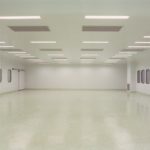
Epoxy flooring is a frequently utilized hygienic solution. Since it is seamless, it is efficient to clean. This type of fluid-applied system can be an exceptionally beneficial solution for facilities looking for a durable yet aesthetic system. Epoxies can incorporate decorative flakes or aggregates and offer an array of colours, allowing you to design a floor that fits both your branding and operational needs.
2. Urethane Floors
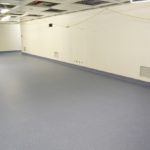
Urethane, or polyurethane, resins make up several different types of coating system and offer unique performance properties. For example, Urethane Mortar, sometimes called “cementitious urethane”, is ideal for extreme, heavy duty environments. Some varieties can be installed at thicknesses of half-an-inch or more. In contrast, thin film High Performance Urethane topcoats are frequently installed over epoxy floor systems to further enhance surface hardness, abrasion resistance and chemical resistance.
3.Hybrid Floors (Epoxy Polyurethane Flooring)
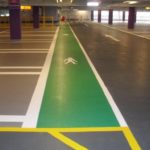
While epoxy and urethane both make for highly effective industrial flooring solutions on their own, epoxy and urethane are sometimes used on concrete floors by reengineered both together for the best. Combining these flooring options ends up with unmatched durability and longevity. The floor will last longer than any other floor coating solution. The floor is resistant to damage from water, oil stains, abrasions and impact.
Comparison between Epoxy & Urethane Floor
The common elements which an Industrial floor should consists of:
- Heat resistance
- Flexibility
- Abrasion resistance
- Slip resistance
- Easily cleanable floor9
The advantages of Polyurethane floors:
- Polyurethane floors have much wider range of heat / cold resistance compared to Epoxies.
- Polyurethane floor possesses “elastomeric memory” which can withstand considerable amount of deflection (in tension or compression), without any permanent deformation.
- The abrasion resistance of Polyurethane is far superior to Epoxies.
- Polyurethanes have slight textured finish and provides ant-slip surface by nature.
- Abrasion Resistance of PU floors – Classified ‘Special Duty under BS8204: Part 2:2002(9)
- Slip Resistance of PU floors – Classified ‘Satisfactory’ Under BS8204: Part 2:2002(9), Wet and dry
- Impact Resistance – Classified ‘High Impact Resistance’ under BS 8204: Part 1:1999
Disadvantages of Epoxies:
- The temperature resistance of Epoxies is only up to 50 Deg C.
- Epoxies “melt” above 50°C quite easily even with a few seconds duration
- Cleaning ability: Epoxies prone to get scratches and difficult if not impossible to keep clean.
- Impact resistance; falling/dropping items, metallic objects, heavy metals, impact is too much for epoxies to withstand as epoxies are too brittle. Where in Polyurethanes easily absorb the impact and spread out to substrate.
Comparison of Epoxy, Polyurethane, Epoxy Polyurethane & R 70 CP / R 90 CP:
| No | Property | Traditional
Polyurethane |
Traditional Epoxy | Epoxy Blended with
Polyurethane |
ARDEX R 70 CP/R 90 CP |
| 1 | Resin chemistry | Polyurethane based | Epoxy based | Epoxy-isocyanate based | Polyurethane based |
| 2 | Application on
Fresh concrete |
Not possible, need
minimum 28 days or more to reduce the moisture content < 5%. |
Not possible, need
minimum 28 days or more to reduce the moisture content < 5%. |
Not possible, need
minimum 28 days or more to reduce the moisture content < 5%. |
Possible, can be applied on 7 days old concrete or 2 days old polymer screeds. |
| 3 | Impact resistance | Resilient, no cracking,
dent appear on surface. |
Brittle, will get cracked
& delaminate. |
Resilient, no cracking | Classified ‘High Impact
Resistance’ under BS 8204: Part 1:1999 |
| 4 | Chemical
Resistance |
Good chemical
resistance to acid, poor chemical resistance to Alkalis & solvents. |
Good chemical
resistance to alkali, poor chemical resistance to acids & solvents. |
Good chemical
resistance to alkali, poor chemical resistance to acids & solvents. |
Excellent chemical
resistance to acid, Alkalis & solvents. Excellent resistance to chemicals commonly present in food industry (Refer to TDS of product) |
| 5 | Hardness &
compressive strength |
Resilient & flexible,
low compressive strength. |
Brittle & hard, High
compressive strength. |
Resilient, High
compressive strength. |
Resilient & Hard, Medium
compressive strength (But, increases as thickness increases). |
| 6 | Thickness | Minimum 4mm thick | Coating start from 100 microns, self levelling up to 3mm thick | Maximum up to 6mm. But, may be high by using Epoxy screed. | Minimum 2mm
(R 70 CP) 9mm (R 90 CP). |
| 7 | UV (Ultra violet
rays) resistance |
Poor UV resistance,
Change in color, reduction in mechanical & chemical properties |
Poor UV resistance,
Change in color, reduction in mechanical & chemical properties. |
Poor UV resistance,
Change in color, reduction in mechanical & chemical properties. |
No UV resistance, but can be coated by PU based coatings. |
| 8 | Temperature
resistance |
Maximum up to 700C | Maximum up to 700C. | Maximum up to 600C | R 70 CP: -40 to + 600 C
R 90 CP: -40 to + 1200 C |
| 9 | Cleaning & Hygiene | Easy to clean, dense & impervious through- out the thickness. | Easy to clean, dense & impervious through-out the thickness. | Easy to clean, dense & impervious through-out the thickness. | Easy to clean, dense & impervious through-out the thickness. |
ARDEX ENDURA ACADEMY
Our industry, like any other, requires on-going training to keep up with the changes in legislation/standards and materials. Our purpose-built training facility enables us to offer a range of demonstrations and seminars that can be tailored to your specific needs, ensuring total confidence in the specification and subsequent on-site application. The academy allows you to learn about new technologies including ‘Industry best practices for Tiling, Waterproofing, Concrete Repair and Flooring’ along with Technical guidance and product information.
For the latest and most up to date information and advice, visit the ARDEXENDURAacademy centres across India (Bangalore, Mumbai, Ahmedabad, Delhi, etc.,). For Flooring Contractors and applicators committed to providing a high level of workmanship, ARDEX ENDURA helps them to increase both their professionalism and productivity.
For our other TILE & STONE CARE, please visit to www.ardexendura.com


